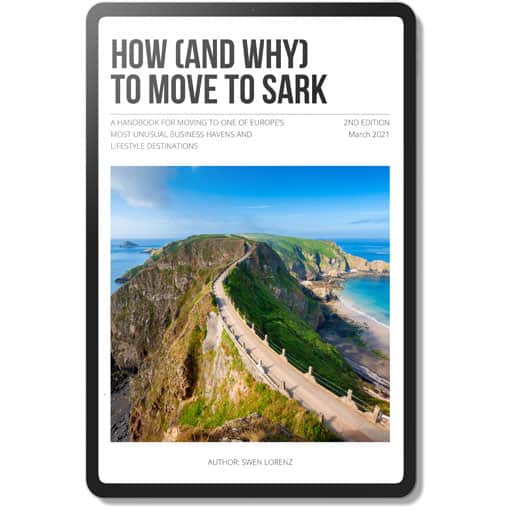If someone refuses to communicate by email, it’s all too often a sign that there is something seriously wrong. After many years of observing three particular kinds of people and their email behaviour, I felt the urge to share why they pose a considerable risk to your business, your wealth, and your quality of life.
Two (unnamed) colleagues of mine feel equally strong about this subject, and they contributed to this article. In that sense, this is a peer-reviewed article rather than just my own view.
Here is the uncensored, unfiltered truth about the three types of email (non-)users that I advise you to stay well clear of.
Do these 3 types sound familiar?
My advice is unusual, and it goes well beyond the long-standing discussion of how to best use email as a medium to communicate.
There are already many great articles out there about the basics of email etiquette and the effective use of email. This includes many entirely sensible rules such as:
- Don’t write emails when you are angry.
- Consider carefully if it’s really necessary to mass-BCC everyone.
- Avoid emails for some things that should be communicated in person first, e.g. laying off people.
This is not what this article is about.
If you want to live a successful, stress-free, and happy life, it is vital you take this advice to heart.
This article points the finger at three specific types of email users that are red flags in more ways than one, and which I believe you should seriously consider removing from your life altogether.
To make it easier to memorise them, I have given them descriptive names:
- The Trickster
- The Lazy-Ass Talker
- The Corporate Snail
Take my word for it, they hide everywhere. Chances are that you’ll already have some of these folks near you, though maybe without you realising.
By staying well clear of these types, you’ll achieve the following:
- Make your business more productive and successful.
- Increase your quality of life by reducing distractions and annoyances.
- Avoid legal risks in your business.
If you want to live a successful, stress-free, and happy life, it is vital you take this advice to heart.
1: The Trickster
This one is the most dangerous. I have put them first on purpose.
Keep your eye out for people who do not want to communicate by email because they want to avoid a trail of written evidence AND use their manipulative skills on you.
The Trickster will hide beyond a very elaborate façade of arguments why he or she prefers personal meetings or phone calls. These will make sense on the surface, and often be geared towards making you feel good or making them look likeable and trustworthy. But any and all actions of these people are ultimately only geared towards their goal and priority of making you do things that you would not agree to if you hadn’t been caught off-guard, and avoiding any written evidence.
Most often, these are highly manipulative people. The sort of person who has taken manipulating others to an art form.
They know that if they communicated with you by email, you’d have time to carefully consider your reply. By taking this away from you, they want to use their manipulative skills to push you into a specific direction. E.g., they will have prepared extensively for that phone call or meeting and have an exact game plan of what they want to get out of you. I know of people that are so manipulative that they role-play meetings before-hand to get their course of action down to fine art. You, on the other hand, will have a lot of new information to process about a new situation.
By moving a conversation to “their” arena, you will automatically be in a less advantageous position. If it had been done by email instead, you could have taken your time to process the information, then speak to your trusted advisors, and only then give a reply. In a phone call or meeting, you often end up making less considered decisions than you would have done had you been given the time and opportunity to write up your decision.
Hot on the heels of all this comes an often-present desire to not create written evidence. The Trickster knows that by giving you the information in writing, you have information that you could also use against them, whether that’d be negotiating, managing the subsequent activities, or even legal situations. Avoiding accountability is also high on the priority list of these people, and nothing is more useful for establishing accountability than written records.
I have encountered this type many times, and I find them extremely dangerous. Some of them have cost me a lot of money. I have paid dearly for learning about these people. In retrospective, I wish someone had mentored me about them two decades ago.
Having learned my lesson the hard way, I cannot stress just how important it is that you heed this warning. Why would you want to make mistakes of your own, if you could simply learn from the mistakes of others?
Avoiding accountability is also high on the priority list of these people, and nothing is more useful for establishing accountability than written records.
I urge you to keep an eye out for people like this. When they appear on your radar screen, run for the hills! Dealing with them is also way too stressful and energy-sucking. You probably also simply don’t stand a chance to win, given that they will have spent a lifetime honing their skills. They’ll be better at their game than you.
Run, Bambi, run!
2: The Lazy-Ass Talker
Another revelation I have had over the years is that there is actually a type of person who loves hearing their own voice AND has a pathological inability to getting things done (whether “in an effective way” or “at all”). Either one of these traits would be bad enough, but when you encounter them both in the same person, you are dealing with another personality type altogether – and one that you should not tolerate anywhere near you. Whereas the Trickster is outright dangerous, the Lazy-Ass Talker simply has no value to you whatsoever.
The following should be a useful example of this particular type.
You email them a carefully structured request or document with a proposal.
They email back ONE sentence, such as:
- “Let’s jump on a call.”
- “We need to meet to discuss this.”
If they wanted your mutual business to advance in the most effective way, they should have emailed you back something like:
- “Here is my feedback, and to make it easier, I’ve added it below each point.”
- “I’ve made changes to your document in tracking mode; see the attached Word doc.”
- “Nothing to add, I am starting to implement this.”
Obviously, we are all busy and I am not trying to say that everyone should always come up with an immediate, elaborate response. If it’s a lot to take in, it’d be entirely cool if the Lazy-Ass Talker took a while to reply to you. In which case, it’d be a polite gesture to email back something concrete, such as: “This is a lot to take in and I am tied up with a deadline right now. I’ll get back to you with my feedback by the end of next week.”

Looking for clever ways to invest your hard-earned cash?
Head over to my investment website Undervalued-Shares.com for common sense investment opportunities from around the world. Ideas that you won’t find anywhere else!
Have you ever been on a date where the other person was talking 90% of the time and made it difficult for you to get a sentence in?
Them’s the folks I am talking about!
As with all types described in this article, there are variations and nuances.
They get even scarier when you realise that they had a great time and want to see you again, not realising what a total bore it has been for you to endure an evening with a monologue talker. It’s energy-draining. Nothing was gained. Who needs this in their life?
But that’s just an example, and loving to hear their own voice is only part of the equation. The other one is an inability to actually do things, which I have come to realise a certain percentage of the population is simply afraid of or incapable of (or both).
My website aims to provide you with advice and guidance to create a business that is:
- As successful as possible financially (which is a result of being as effective and lean as possible).
- Portable, i.e., doesn’t require physical meetings or coordinating phone calls between time zones (try “jumping on a call” with someone from Europe when you are enjoying your once-in-a-lifetime trip through New Zealand).
- Life-enhancing, i.e., it increases your quality of life rather than be a drag like most “jobs” are (which includes not wasting time unnecessarily).
The bottom line is:
If your colleagues or business partners cannot reply to your carefully thought-through email with an equally carefully thought-through email, or simply get things done, then there is a mismatch between what you need and what they can deliver.
With them, too, there is only one conclusion. Cut them out of your life at the earliest feasible moment. It’s better for both parties to work with someone else.
3: The Corporate Snail
One could reasonably argue that the Corporate Snail is a sub-species of the Lazy-Ass Talker. Though in any case, I believe they are such a common species that they deserve a mentioning of their own.
Just as in the previous case, you send them that email with a carefully structured request or a document with a proposal.
Their reply usually is: “That’s a long email, I will look at this.”
This could be a true statement, and they might simply need time to go through it and provide you with their feedback. But what I am talking about are the types for whom this will ALWAYS be the famous last words. They’ll never get back to you. And they might not even acknowledge your email in the first place.
Instead of thanking you for having made the effort to put together a coherent action plan or proposal, they are sending you a passive-aggressive note that basically says: “You are a weird person for managing your life electronically, and I am too senior to deal with details and reply to you about the points you raised.”
More often than not, these are people who used to work in large corporations, often in positions of power. Their office desk would not have much more than a pencil on it, they need a PA to make a restaurant booking, and their day-to-day life will have involved a never-ending line-up of meetings. They are simply not used to having to deal with details and do some actual hard work.
I have met MANY Corporate Snails over the years, usually, after they have left their jobs to use their – alleged – brilliance in managing to set up their own venture. Once they have left the world of large companies, they are facing up to the reality of entrepreneurial activities demanding a broad scope of skills and activities, up to and including emptying their own trash bin because their venture won’t have the funding to hire cleaning staff. This is something they will either view as below their dignity, or which they are utterly incapable of adapting to. (Fun fact, at least 80% of them, if not even a higher percentage, will be back in a corporate job within two years.)
I have yet to see a Corporate Snail who eventually changes their way to a more effective way of working by email.
Hence, you shouldn’t waste your time on them. No doubt, many of them are perfectly nice people, and unlike the Trickster, they will have no ill-intentions. But they’ll be too slow to work with you and be a drag on your business and quality of life.
Politely, nicely and gradually move on to working with someone more in tune with this day and age.
My awareness of these people has dramatically improved my life
As you will have guessed by now, I am running virtually my entire life by email.
For the avoidance of doubt, I do enjoy meeting up personally. However, my meetings are usually primarily geared towards building and deepening personal relationships, i.e., lunches or dinners with a general rather than a particular agenda. The details are then worked out by email, i.e., based on written communication that is exchanged in the days or weeks after meeting up.
There are also some situations where I still use my phone. For the purpose of this article, I pulled up my current phone bill.
For the four weeks prior , my phone bill shows:
- I made 4 business-related phone calls. Of that, 3 were to people who are close friends and with whom I like to have an actual banter; and 1 because I had lost that person’s email address.
- 1 call to personally apologise for screwing up the timing of a meeting not just once but twice because of errors I made in my diary planning.
- A further 5 calls relating to matters such as restaurant reservations (not always possible online).
So that’s basically me making ONE business related phone call per week. Outside of marketing calls (which I never pick up), I am sometimes lucky enough to not have a single call on my mobile phone for an entire week. My work is now >99% based on emails.
During the same period, I will have sent about 3,000 emails, or an average of 100 a day. The number of emails I will have received during the same period is a bit harder to gauge because I get a tremendous amount of automatic notifications from my own websites or the hundreds of newsletters and publications I am subscribed to. My best estimate is that I receive about as many emails written by others than I send out.
Everything that comes in or goes out is saved in neatly arranged archives, which are then backed up in multiple locations. Having a perfectly kept archive of written evidence helps me keep everyone accountable on an ongoing basis; manage projects independent from time zones and peoples’ availability (= enhanced productivity and ease of working); and has repeatedly saved my ass in situations where I needed legally relevant evidence.
From my perspective, I have arrived at the optimum way of managing my communications. The remaining small degree of phone usage in my life is now a mere rounding error and nothing to get upset about.
I got there because I gradually – over 18 months – worked towards this goal. Deleting most of the above-described types of email refuseniks from my life was part of that, and as you will have seen from what I set out above, this then turns out to be valuable for a variety of reasons.
The next time someone tries to tell you that frequent phone calls or lengthy meetings are required to run a business, build a career, or make money, then take this list out again and compare them against the set of characters I have described.
You could be doing yourself a great favour by shifting your energy towards working with someone else.
If you enjoyed this article, you will probably also like:
Want to print this article? Open a printer friendly version.
Did you find this article useful and enjoyable? If you want to read my next articles right when they come out, please sign up to my email list.
Share this post:


